 You may have missed or not understood the implications of this press release. Here's a guest post from Micky Tripathi, the CEO of the Massachusetts eHealth Collaborative that explains everything you need to know: "This summary provides some additional information on the recently announced interoperability agreement between CommonWell and The Sequoia Project (Carequality). For full disclosure, I am on the Board of Directors of The Sequoia Project, a contractor to CommonWell, and participated in the discussions leading to the agreement. The description below does not necessarily reflect the views of either of these organizations or any of the named vendors...
You may have missed or not understood the implications of this press release. Here's a guest post from Micky Tripathi, the CEO of the Massachusetts eHealth Collaborative that explains everything you need to know: "This summary provides some additional information on the recently announced interoperability agreement between CommonWell and The Sequoia Project (Carequality). For full disclosure, I am on the Board of Directors of The Sequoia Project, a contractor to CommonWell, and participated in the discussions leading to the agreement. The description below does not necessarily reflect the views of either of these organizations or any of the named vendors...
 Audacious Inquiry (Ai), an industry leader in connected care, and The Sequoia Project, Inc a non-profit dedicated to solving health IT interoperability for the public good, announced a teaming agreement to support the PULSE initiative and to leverage their combined expertise in support of displaced populations needing medical treatment and ongoing care as part of disaster response efforts. Ai first developed the PULSE concept under contract with the Office of the National Coordinator for Health IT (ONC) in April 2014. In March 2016, the California Emergency Management Services Authority (CalEMSA) contracted with Ai to develop and operate PULSE. PULSE was subsequently activated for use during the California wildfires in October 2017, with the support of The Sequoia Project. The non-profit works to advance the breadth of PULSE by leveraging national networks and by convening a national advisory council of experts.
Audacious Inquiry (Ai), an industry leader in connected care, and The Sequoia Project, Inc a non-profit dedicated to solving health IT interoperability for the public good, announced a teaming agreement to support the PULSE initiative and to leverage their combined expertise in support of displaced populations needing medical treatment and ongoing care as part of disaster response efforts. Ai first developed the PULSE concept under contract with the Office of the National Coordinator for Health IT (ONC) in April 2014. In March 2016, the California Emergency Management Services Authority (CalEMSA) contracted with Ai to develop and operate PULSE. PULSE was subsequently activated for use during the California wildfires in October 2017, with the support of The Sequoia Project. The non-profit works to advance the breadth of PULSE by leveraging national networks and by convening a national advisory council of experts.
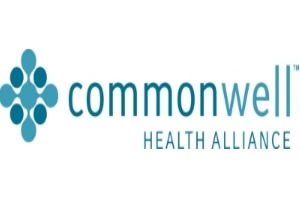 CommonWell Health Alliance and Carequality announced today an agreement to increase health IT connectivity nationwide. The agreement provides additional health data sharing options to a broad range of stakeholders across healthcare, and has three aspects:
CommonWell Health Alliance and Carequality announced today an agreement to increase health IT connectivity nationwide. The agreement provides additional health data sharing options to a broad range of stakeholders across healthcare, and has three aspects: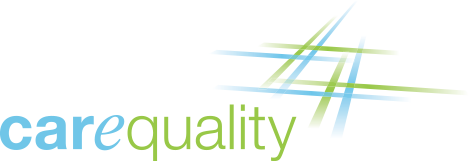 Carequality today announced publication of the Carequality Interoperability Framework. The comprehensive Framework consists of multiple elements, including legal terms, policy requirements, technical specifications, and governance processes, which operationalize data sharing under the previously approved Principles of Trust. The Framework is now available for health information exchange networks, vendors, payers, and others across the healthcare ecosystem to adopt, providing a practical approach to unlocking previously unseen levels of connectivity.
Carequality today announced publication of the Carequality Interoperability Framework. The comprehensive Framework consists of multiple elements, including legal terms, policy requirements, technical specifications, and governance processes, which operationalize data sharing under the previously approved Principles of Trust. The Framework is now available for health information exchange networks, vendors, payers, and others across the healthcare ecosystem to adopt, providing a practical approach to unlocking previously unseen levels of connectivity. 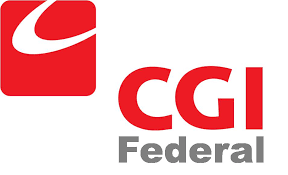 CGI announced today that the CONNECT Gateway has been tested and certified for use on the eHealth Exchange by The Sequoia Project. CONNECT is a dynamic open source platform that supports the secure exchange of health information for more than two thousand organizations in the U.S., including federal agencies, states, healthcare providers, insurers, and health IT vendors...
CGI announced today that the CONNECT Gateway has been tested and certified for use on the eHealth Exchange by The Sequoia Project. CONNECT is a dynamic open source platform that supports the secure exchange of health information for more than two thousand organizations in the U.S., including federal agencies, states, healthcare providers, insurers, and health IT vendors... The eHealth Exchange, an initiative of The Sequoia Project, celebrates Veterans Day powering the launch of a Social Security Administration (SSA) and Department of Veteran Affairs (VA) health IT initiative to speed disability determinations for veterans by enabling all Social Security disability case processing sites to receive medical records electronically from all VA facilities. Earlier this year, the Department of Defense’s Military Health System (MHS) and the eHealth Exchange expanded cooperation to enable electronic health data sharing for more than 9.4 million active duty service members, veterans, retirees, and families served by the MHS...
The eHealth Exchange, an initiative of The Sequoia Project, celebrates Veterans Day powering the launch of a Social Security Administration (SSA) and Department of Veteran Affairs (VA) health IT initiative to speed disability determinations for veterans by enabling all Social Security disability case processing sites to receive medical records electronically from all VA facilities. Earlier this year, the Department of Defense’s Military Health System (MHS) and the eHealth Exchange expanded cooperation to enable electronic health data sharing for more than 9.4 million active duty service members, veterans, retirees, and families served by the MHS...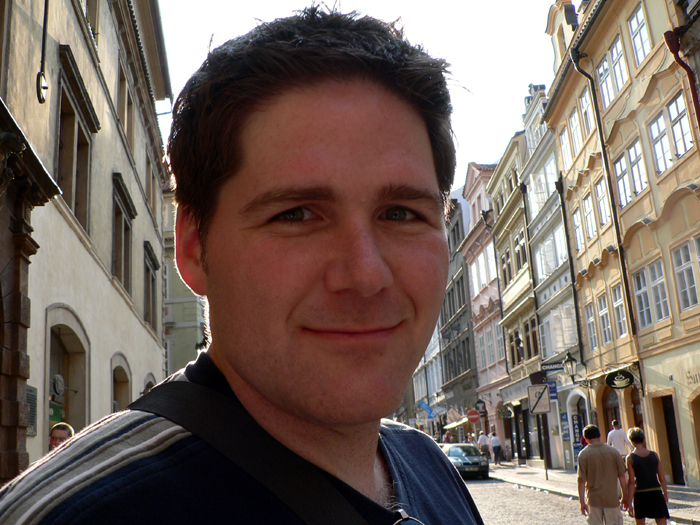 Key to the success of the Carequality Interoperability Framework was the enthusiastic participation of healthcare IT industry leaders and organizations and their collaboration with Carequality. This work was carried out under the guidance and direction of the Sequoia Project staff, with input from the Carequality Query Work Group. Carequality, a public-private collaborative initiative of The Sequoia Project, creates a standardized, national-level interoperability framework to link all data sharing networks. The Carequality Interoperability Framework is a collection of documents that are used to operationalize data sharing that include...
Key to the success of the Carequality Interoperability Framework was the enthusiastic participation of healthcare IT industry leaders and organizations and their collaboration with Carequality. This work was carried out under the guidance and direction of the Sequoia Project staff, with input from the Carequality Query Work Group. Carequality, a public-private collaborative initiative of The Sequoia Project, creates a standardized, national-level interoperability framework to link all data sharing networks. The Carequality Interoperability Framework is a collection of documents that are used to operationalize data sharing that include...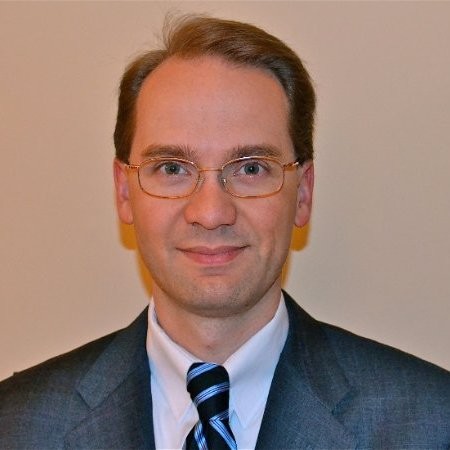 On December 5, 2019, HLN Consulting, LLC participated in The Sequoia Project's day long annual meeting which was held just outside of Washington, D.C. at the Gaylord National Resort & Convention Center. As a leading healthcare informatics consulting company HLN monitors developments in healthcare interoperability nationally with particular emphasis on the impact to public health agencies and their stakeholders. This conference represented a good opportunity to participate in the start of a major interoperability initiative that will play out over the next several years. In addition to this report, the Sequoia Project posted the proceedings of the meeting online, including the recorded discussions as well as the slides from the presentations.
On December 5, 2019, HLN Consulting, LLC participated in The Sequoia Project's day long annual meeting which was held just outside of Washington, D.C. at the Gaylord National Resort & Convention Center. As a leading healthcare informatics consulting company HLN monitors developments in healthcare interoperability nationally with particular emphasis on the impact to public health agencies and their stakeholders. This conference represented a good opportunity to participate in the start of a major interoperability initiative that will play out over the next several years. In addition to this report, the Sequoia Project posted the proceedings of the meeting online, including the recorded discussions as well as the slides from the presentations.  On January 18, 2022 the Office of the National Coordinator for Health Information Technology (ONC) finally released version 1 of the Trusted Exchange Framework, Common Agreement and the QHIN (Qualified Health Information Network) Technical Framework (QTF). Several years in the making, these documents represent the latest attempt at initiating a national health information exchange in the United States. This project is being managed by ONC’s Recognized Coordinating Entity (RCE), The Sequoia Project, and was inspired by both the HITECH Act and 21st Century Cures Act.
On January 18, 2022 the Office of the National Coordinator for Health Information Technology (ONC) finally released version 1 of the Trusted Exchange Framework, Common Agreement and the QHIN (Qualified Health Information Network) Technical Framework (QTF). Several years in the making, these documents represent the latest attempt at initiating a national health information exchange in the United States. This project is being managed by ONC’s Recognized Coordinating Entity (RCE), The Sequoia Project, and was inspired by both the HITECH Act and 21st Century Cures Act. Today we are pleased to announce the timeline for the Trusted Exchange Framework and Common Agreement (TEFCA). The 21st Century Cures Act, signed by President Obama in 2016, calls on ONC to "develop or support a trusted exchange framework, including a common agreement among health information networks nationally."... The timeline released today-for completion of the Trusted Exchange Framework, the Common Agreement Version 1 and the Qualified Health Information Network (QHIN) Technical Framework (QTF) Version 1-establishes our goal to have this new network open for participation in the first quarter (Q1) of calendar year 2022.
Today we are pleased to announce the timeline for the Trusted Exchange Framework and Common Agreement (TEFCA). The 21st Century Cures Act, signed by President Obama in 2016, calls on ONC to "develop or support a trusted exchange framework, including a common agreement among health information networks nationally."... The timeline released today-for completion of the Trusted Exchange Framework, the Common Agreement Version 1 and the Qualified Health Information Network (QHIN) Technical Framework (QTF) Version 1-establishes our goal to have this new network open for participation in the first quarter (Q1) of calendar year 2022. The Sequoia Project’s Emergency Preparedness Information Workgroup (EPIW) today published Pandemic Response Insights and Recommendations, a free whitepaper for local, state, and federal emergency preparedness and public health officials and their partners. The workgroup, consisting of emergency preparedness, response, and public health experts, convened over several months to discuss gaps in current solutions. The workgroup recommended ways to make information more readily available to support a more robust and coordinated response to future emergencies.
The Sequoia Project’s Emergency Preparedness Information Workgroup (EPIW) today published Pandemic Response Insights and Recommendations, a free whitepaper for local, state, and federal emergency preparedness and public health officials and their partners. The workgroup, consisting of emergency preparedness, response, and public health experts, convened over several months to discuss gaps in current solutions. The workgroup recommended ways to make information more readily available to support a more robust and coordinated response to future emergencies.